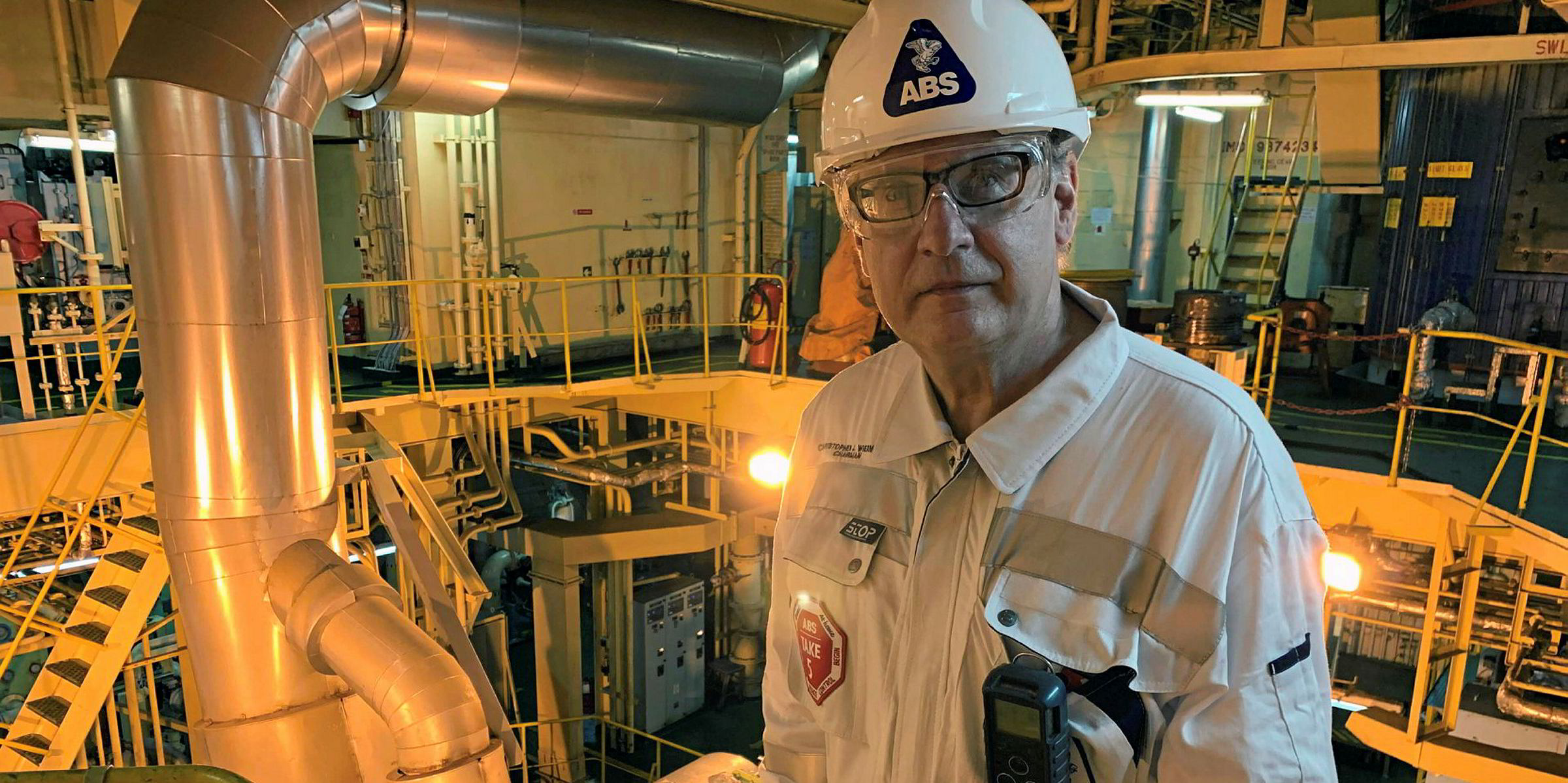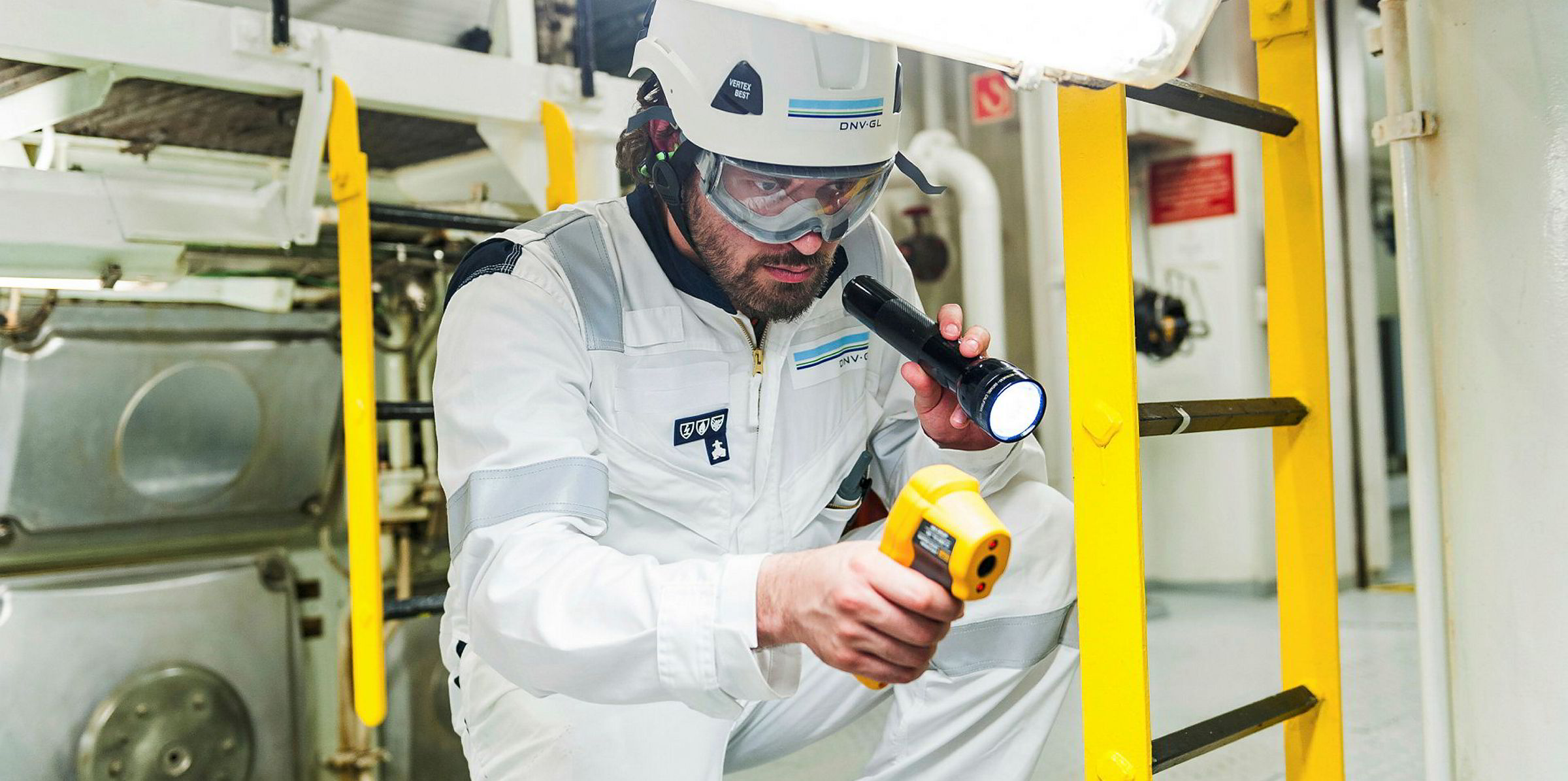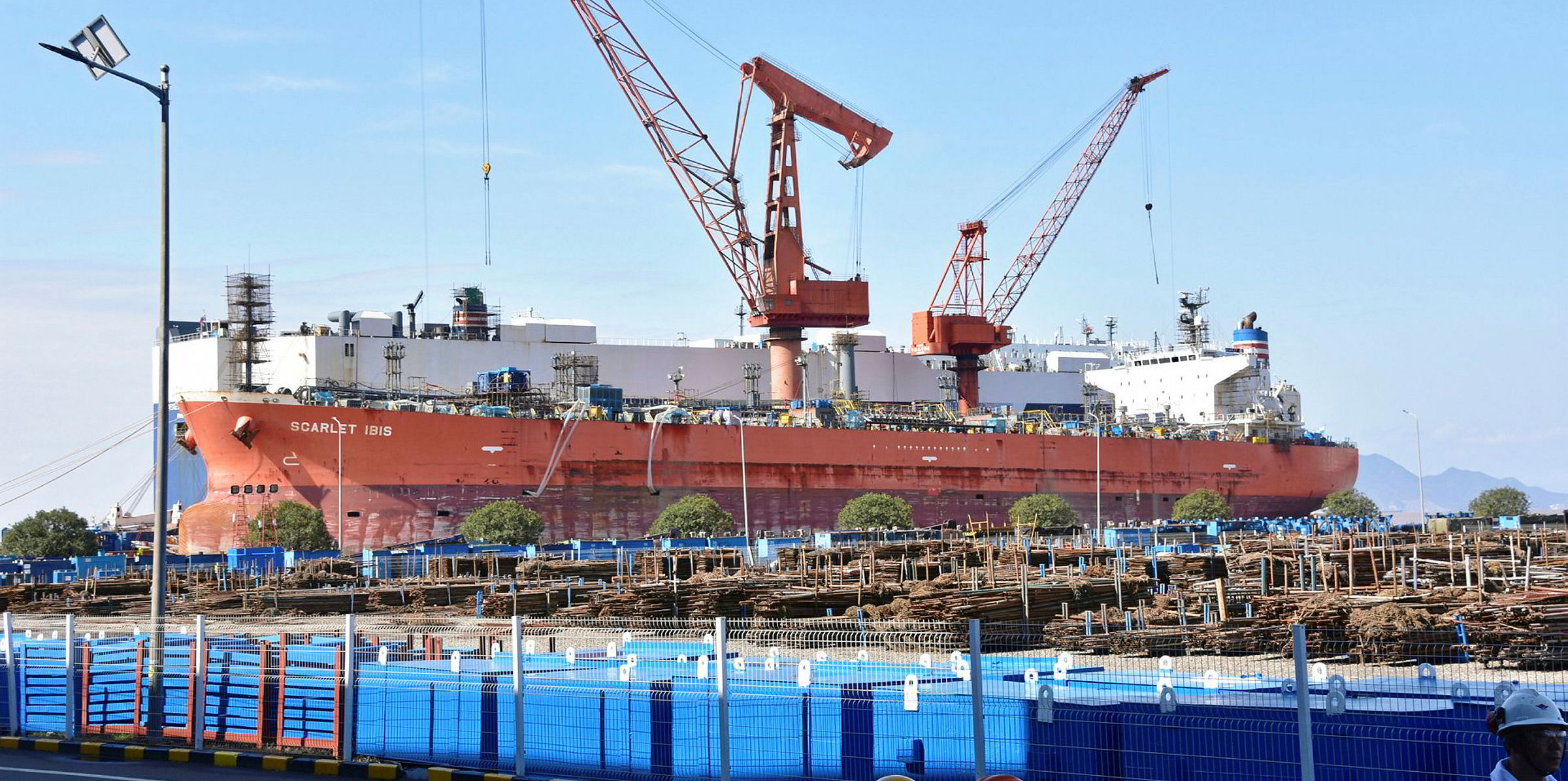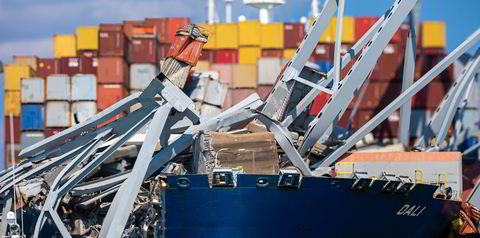The wider and more frequent use of remote ship safety inspections to help shipowners meet statutory flag and class certification requirements during the coronavirus crisis may be here to stay.
The dramatic take off in remote inspections over recent months has been so remarkable that it has got some asking whether the days of a classification surveyor visiting a ship could be numbered.
TradeWinds e-paper gives you access to the weekly print edition in digital form. You'll also find an archive of previous editions, and copies of TW+, from the leading international shipping news provider.
You can access our e-paper by clicking this link
The industry’s largest classification society, DNV GL, said that since 2018 it has now clocked up 15,000 remote surveys using digital technology, which has come into its own during the crisis. It estimates more than one-quarter of surveys are now being done remotely.
Postponements
The coronavirus has thrown dock schedules into chaos, while travel restrictions have prevented class surveyors from getting to ships.
Generally, during the crisis, digital remote inspection techniques have allowed surveyors to make an emergency safety assessment of ships and machinery when surveyors have been unable to step onboard.
A breakthrough agreement came last week when the world’s second-largest flag state, Liberia, said it would recognise remote inspection by classification Italian classification society RINA.
The recognition of RINA’s services by flag-state Liberian International Ship & Corporate Registry (LISCR) is not just a temporary arrangement for the current crisis but intended to continue into the future.
“The shipping industry is forced to put in place additional measures to maintain the continuity of operations and ensure the safety and protection of people’s health,” RINA chief executive Ugo Salerno told TradeWinds:
“But some of the changes made will prove to be beneficial beyond the emergency and will stay and change how the sector works. The official authorisation LISCR given to RINA for the use of our remote technology for inspections is an example of this and is the first step of a no-looking-back path.”
Number of remote surveys
DNV GL: 15,000 since 2018
RINA: 300 since May 2019
RINA: 60 in March 2020
Remote surveys covered by ABS
Load line
Three-month boiler extension
Continuous machinery
Tail shaft three-month extension survey
Minor damage
Condition of class and statutory condition
Remote underwater examination of offshore units
RINA’s remote survey system is based on a simple mobile application that allows visual and other data to be passed onto a surveyor through a variety of mobile digital technologies.
Simple techniques such as live streaming or recorded video data, as well as drones are used in the remote surveys.
In such cases, remote data detailing the critical safety elements can assure classification societies and flag states that the ship is in a fit state for extensions to be granted.
During the crisis, ABS has also extended its own remote survey services to go beyond the ship itself and include ship equipment and materials.
ABS Remote Survey is already being applied to condition of class or statutory surveys, load line, boiler surveys, damage and other types of surveys. Even underwater surveys for offshore vessels are being carried out remotely.
ABS chief executive Christopher Wiernicki said: “As more clients are reporting the challenges they are now facing as a result of the pandemic, ABS is responding by expanding our remote survey offerings from vessel attendance to now include vendors for the first time in order to help keep the marine and offshore supply chains moving forward.”
Wiernicki said the coronavirus crisis is making the value of remote survey and inspection techniques clear to the shipping industry. He expects the growth of remote survey services, which also includes the digital in-service monitoring of vessels, to be accelerated by the current global crisis.
“The maritime industry continues its own digitally driven movement into condition-based approaches and real-time, risk-based, data-driven decision making, developing technologies that enable many of us to do our jobs without being physically present at the work site. Never has this tremendous value been more clear,” he said.
The industry’s largest classification society DNV GL also said the investments made in remote survey techniques are now paying off.
It points out that not only has such technology contributed to keeping ships operating at a time of crisis but it has also turned out to be more cost efficient.
Automatic updates
One bonus is that through the development of electronic certificates, available from most of the leading classification societies, class and statutory certificates can be automatically updated.
DNV GL chief executive of marine Knut Orbeck Nilssen said: “The use of remote surveys has meant that we have been able to limit disruptions to customer operations resulting from travel bans or quarantines involving our surveyors. Ship operators are able to receive immediately updated and verified electronic certificates.”






